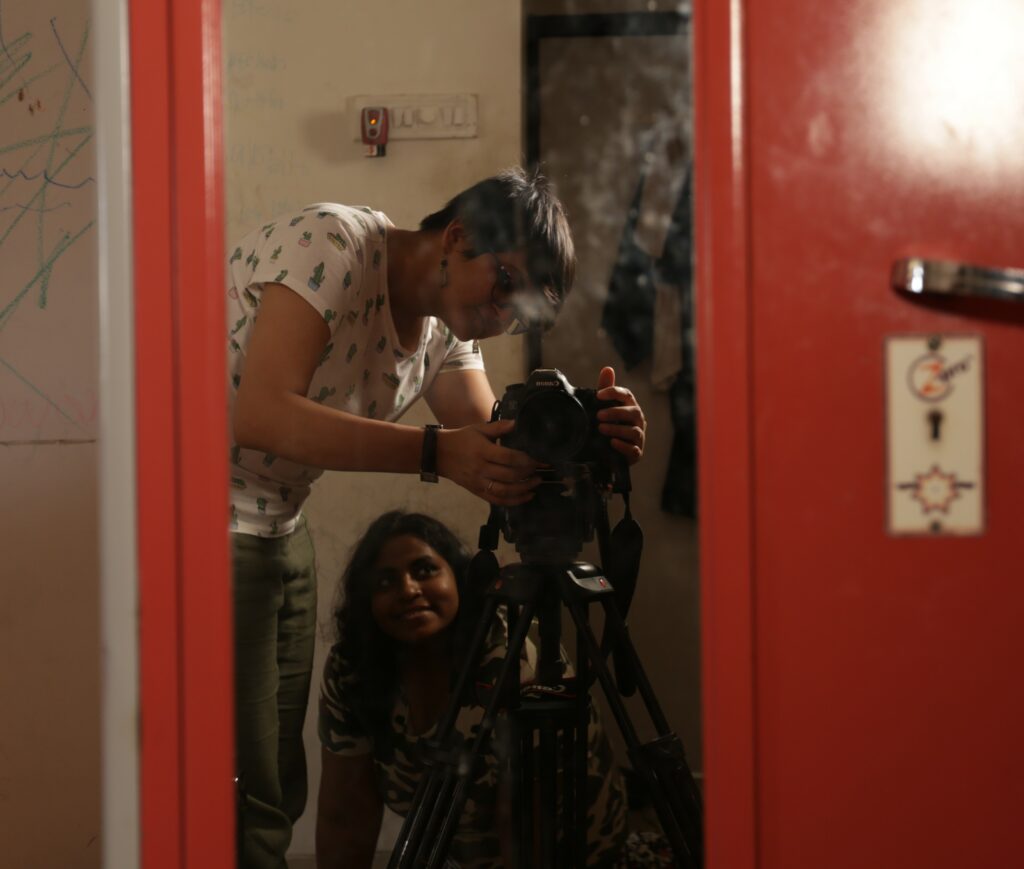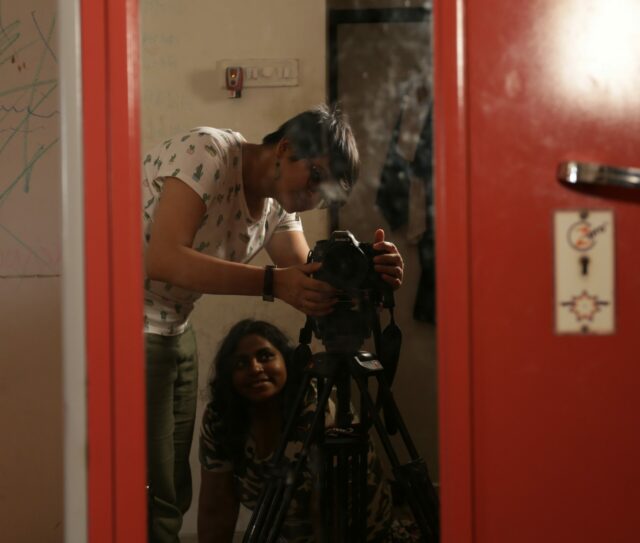Shweta Ghosh, one of the winners of this year’s Research Engagement and Impact Awards, argues that by failing to bring disabled filmmakers into frame, the film industry misses out.

In a time when anyone with a digital video device can shoot a film and the internet provides a free platform to showcase a diversity of stories, it should be possible for anyone to make one. Nonetheless, people with disabilities remain almost invisible in India, which is home to one of the world’s largest film industries.
My practice-led research project, We Make Film, sought to understand and support the work of aspiring as well as practising filmmakers with disabilities in urban India, and the billion-dollar media and entertainment industry that rarely sees them as audio-visual storytellers. It explored the various ways that disability and filmmaking interact in urban Indian contexts, focusing on the inaccessibility of film and video technology, barriers to film consumption and education, and how filmmakers continue to negotiate these barriers and articulate their creative vision.
For the research and filmmaking process undertaken during the project, I developed a unique interdisciplinary collaborative practice methodology (and an interview-workshop method of documentary filmmaking) to work with disabled filmmakers as both research crew and participants. This connected disabled and non-disabled filmmakers to each other to explore their experiences of creative expression and created new knowledge and networks across these communities while actively experimenting with more inclusive filmmaking practices.
“I learnt a lot more on the gaps which exist between filmmakers with disabilities and the filmmaking process (equipment, filmmaking methods, attitudes of media professionals to people with disabilities). It was accessible and inclusive and I was given space to voice my concerns on the topic.” Disabled crewmember
The research showed that, even though people with disabilities work in exciting ways to create films, filmmaking still centres on the perspectives and practices of non-disabled people, both on and off the screen. Where disabled stories do feature in films, these are told through a non-disabled gaze and without disabled filmmakers driving the storytelling themselves. Our experiences of films are traditionally restricted to audio and visual senses (sight and hearing), but a broadening to include other sensory experiences can actually open whole new creative avenues and experiences. For example, blind filmmakers may use tactile means (touch) to learn the visual diversity offered by different camera movements or understand and communicate the spatial organisation of objects and actors when directing a scene.
These research outcomes are not only being disseminated via the standard methods (journal articles and publications) but through a series of screenings and discussions of my 80-minute feature documentary, We Make Film. By sharing research insights across academia, industry and disabled and deaf communities I hope to expand conversations on disability and filmmaking and build solidarities and networks across the world. Since 2021, the film has been shown at various international film festivals and events and has received awards including Best Accessible/Inclusive Film at the Together! 2021 Disability Film Festival. It was also selected for Good Pitch Local Deccan (India), a documentary impact programme run by Doc Society UK and Indian Documentary Foundation. The inclusion of the film in this programme led directly to the introduction by Good Pitch Local Deccan (India) of measures to improve the accessibility of their events and accompanying video material, including audio description, sign language interpretation, and live captioning.
“During impact production of the film, Dr Ghosh initiated several conversations on accessibility, creating a cultural shift in the way we visualised a Good Pitch event, by learning and implementing several key practices. At the forum, the film was also able to facilitate a constructive dialogue on the viability of allyship and collaborative filmmaking to support disabled creatives.” Good Pitch Local Deccan team
The process of engaging film practitioners, disabled and non-disabled, will continue and the focus is on engaging with film/media schools and departments and film festivals in India, in addition to connecting existing (non-disabled) professionals in the film industry to aspiring filmmakers with disabilities in India.
When disabled individuals tell their own stories, authentic representations of people with disabilities are more likely to emerge, enriching the film experience for everyone. The industry, in my view, should re-evaluate working practices and aesthetic approaches that are rooted in ableism, and build a broader creative environment.
Dr Shweta Ghosh is a Lecturer in Screen Practices and Industries in the Department of Film, Theatre & Television.
This is an extended version of an article that appeared in the University of Reading Graduate School Doctoral Research Highlights 2021 brochure.
For more information about the winners and finalists of the Research Engagement and Impact Awards 2022 by downloading the Awards booklet or visiting the research webpages.

